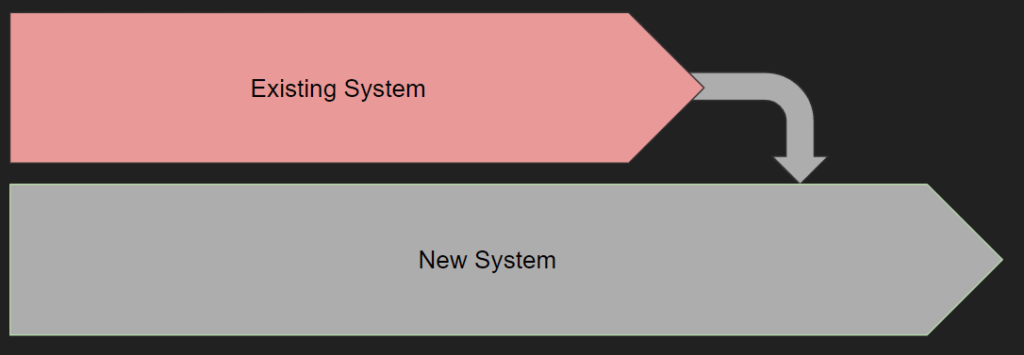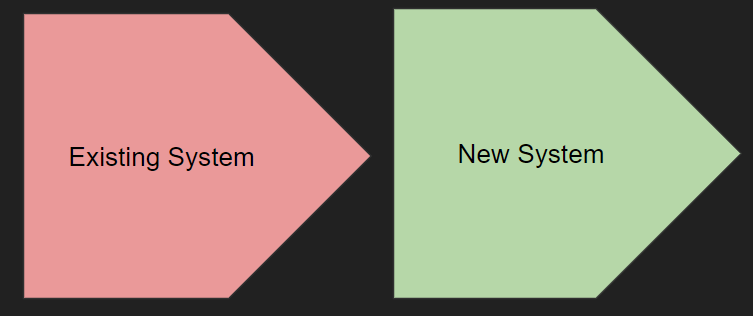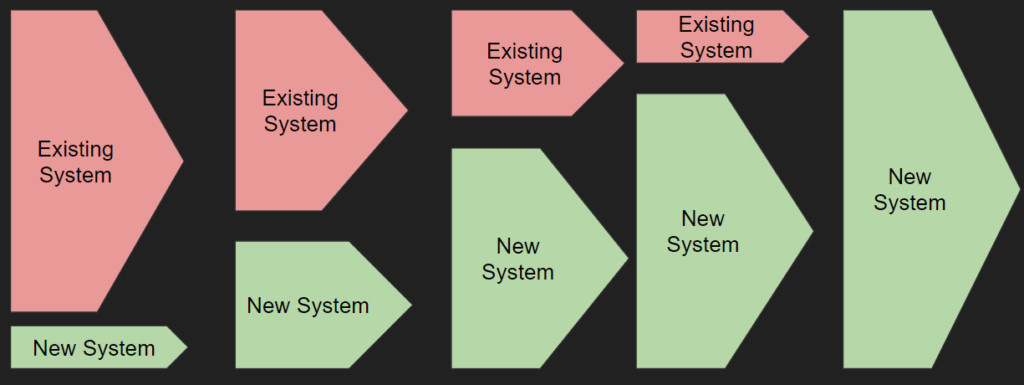Introduction
Introduction
Depending on the nature of the existing system, the organisation and time / budget limitations 4 installation/rollout strategies may be adopted:
- Pilot
- Parallel
- Direct
- Phased
Often a hybrid approach from those above is adopted.
Pilot
Pilot Implementation
This is where a small group of users are chosen to test the new system before it is rolled out the whole organisation.

Pros
- Limits the potential negative on the business
- Low cost
- Encourages innovation
- Can receive immediate feedback
- Allows users time to adapt.
- Pilot users can be used to build buy-in and train other users.
Cons
- Can lead to bias depending on the choice of pilot group
- Takes time before the business sees a benefit
- You can’t test scalability
Parallel
Parallel Implementation
This is where the new system is deployed at the same time as the existing system and all processes are duplicated.

Pros
- Limits the liability for the organisation because there is always a backup.
- Allows for immediate switchover to the new system once the management are confident in it.
Cons
- Very resource consuming
- Can lead to data integrity issues.
Direct
Direct Changeover
This is where the existing system is immediately replaced with the new system.

Pros
- Very quick and potentially cheap if nothing goes wrong.
- Great if there is no existing system.
- The only option if the existing system is rendering non-functional.
Cons
- Extremely risky
Phased
Phased Changeover
This is the new system is implemented module by module until the system is completely replaced.

Pros
- Limits the risks to one module at a time.
- Can be used with pilot system.
- Scalability can be tested in a safe manner.
- Allows users time to adapt to the new system and build buy-in.
Cons
- Can very very time consuming and expensive.
- Requires a lot of management of the process.